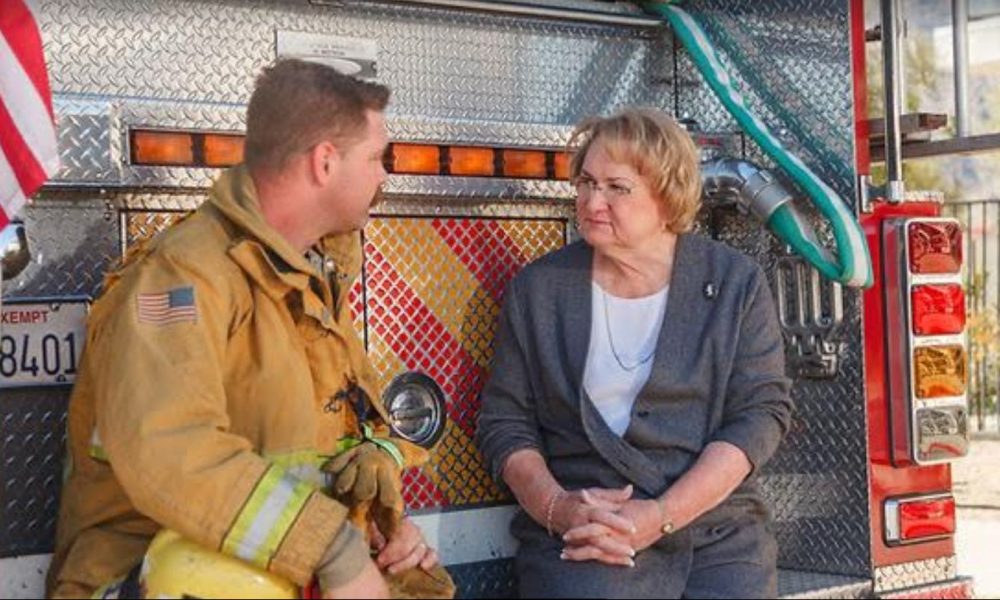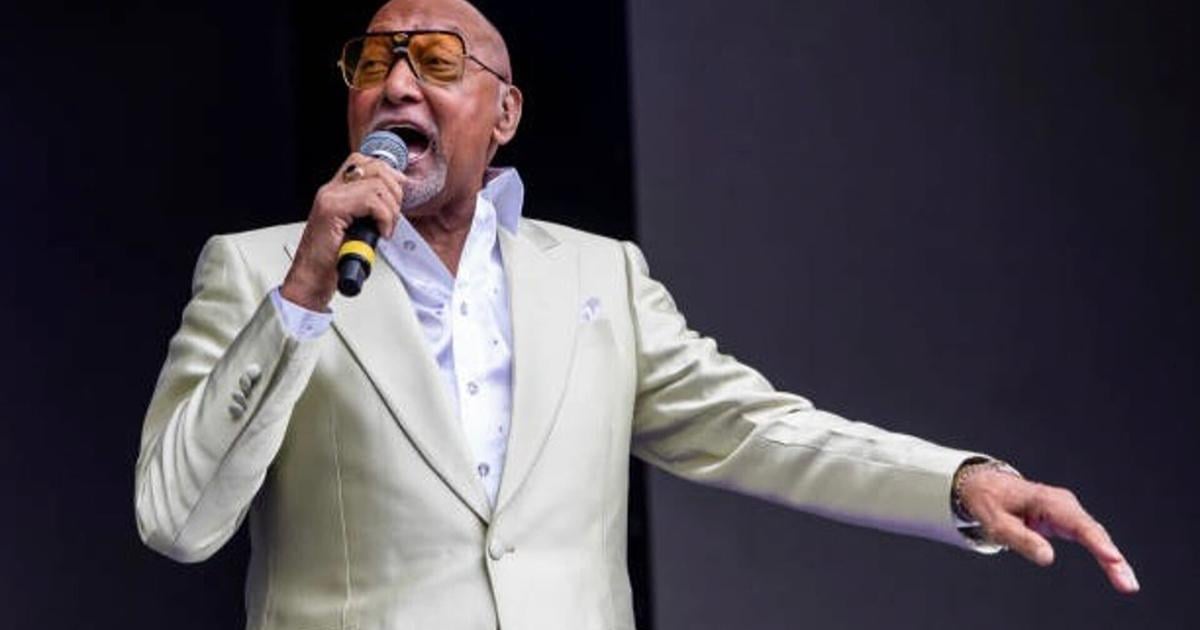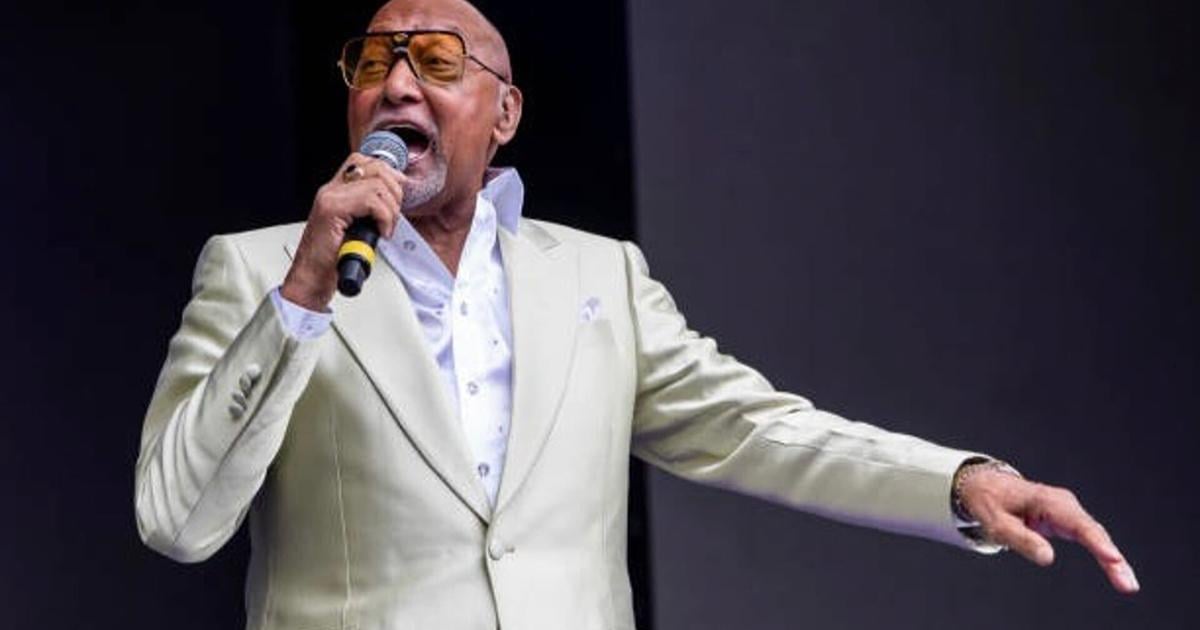PALM SPRINGS, Calif. – In a bid to challenge the status quo and bring accountability to Washington, former federal prosecutor Will Rollins has advanced to the ballot in his pursuit of a seat in the U.S. House of Representatives to represent California’s 41st Congressional District this November.
He will face Republican incumbent Ken Calvert in a rematch of the 2022 campaign for the seat that saw Rollins defeated by Calvert. Of the total vote count of 236,638, Calvert garnered 123,869 votes to Rollins’ 112,769.
Rollins is a seasoned legal professional with a focus on counterterrorism and counterintelligence cases. His decision to run for Congress stems from a deep-rooted concern for the threats facing democracy and communities, exacerbated by what he perceives as the extremism and corruption entrenched in current political structures.
Rollins lives in the desert city of Palm Springs with his partner of 13 years, Paolo Benvenuto. While they have no children of their own, Rollins emphasized that they love their role of being “Guncles” to their nieces and nephews.

From Legal Roots to Political Ascent
Rollins’s upbringing in a family with bipartisan affiliations has deeply influenced his perspective on governance and reform.
Growing up amidst discussions of legal proceedings and journalistic pursuits, Rollins developed a multifaceted understanding of societal dynamics and the importance of a free press. His father’s career as a journalist, including an encounter with notorious serial killer Ted Bundy, imbued Rollins with a deep respect for the power of print media in shaping public discourse and holding authority to account.
“I was raised to appreciate the intricate balance between law enforcement’s duty to protect and uphold constitutional rights,” Rollins said. “It’s about ensuring safety while also safeguarding individual liberties and holding those in power accountable.”
Rollins’s journey from the courtroom to the campaign trail embodies a fusion of legal acumen, familial influence, and a commitment to democratic ideals.
As he progresses through the primaries, Rollins seeks to bridge partisan divides and champion a platform rooted in justice, integrity, and the collective well-being of Californians in the 41st District.
A Personal Journey Toward Equality
The catalyst for Rollins’s interest in counterintelligence and military service traces back to a pivotal moment during his junior year of high school. He recalled the profound impact the events of 9/11 had on his worldview.
“My heightened interest came when I was junior year in high school, and I went into my first class of the day which was Model UN. We watched on the West Coast as the North Tower collapsed. That had a profound impact on me seeing other Americans covered in ash, and being scared. I remember being scared.”
It was around this time that Rollins toyed with the idea of following in the footsteps of his veteran grandparents and enlisting in the military. However, being closeted in a society where discriminatory laws like “Don’t Ask, Don’t Tell” prevailed added layers of complexity to his decision.
“Being closeted and watching the stories of Arabic linguist being discharged under don’t ask don’t tell at the time created very complicated and difficult emotion to experience as kid. You want to serve your country and you want to be part of a team, but you have your government telling you that there is something defective about you and that you pose a threat to national security. That is horrible. I don’t think any kid should grow up feeling that.”
He emphasizes the detrimental effects of discriminatory laws on individuals and society as a whole, advocating for equality and merit-based opportunities for all Americans.
“That experience did shape a lot of my outlook on antidiscrimination laws, and why quality and freedom for everybody makes the whole country stronger. You have to let people thrive based on merit, not based on what they look like or who they love.”
Reflecting on his delayed coming out, Rollins acknowledges the regret and internal conflict he grappled with for years.
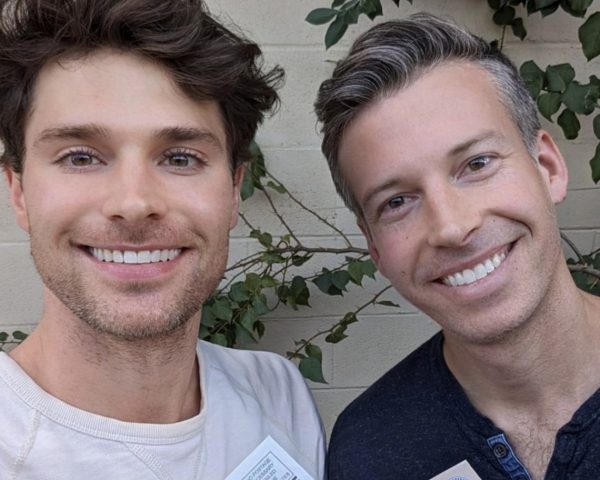
“I regret not being able to accept myself sooner because it was so limiting you end up living your life for fear of what other people think rather than for yourself that has a major impact, not an individuals but our society collectively, and that’s part of the argument that I always try to make to voters.”
Advocacy for LGBTQ+ Rights and Economic Thriving
Rollins emphasized the critical need for advocacy and support for LGBTQ+ individuals, particularly in Riverside County.
“Growing up in the greater LA area where people assume that it is progressive, and they assume that everybody embraces LGBT rights and that they have for a long time. Unfortunately, that is just not the reality.”
When the the Murrieta Valley Unified School District adopted neighboring Chino Valley Unified’s policy notifying parents of student gender identity, Rollins said that fighting for LGBTQ+ rights and protection in California is at the forefront of his concerns.
“You hear people talking about LGBT kids as dangerous. There is a reversion to this 1950’s idea that being LGBT is contagious fueled by the rhetoric on the Right about grooming,” he said.
Rollins passionately articulated the importance of representation and empowerment for LGBTQ+ youth, stressing the message that there is nothing wrong with being true to oneself. “We need to punch back as LGBTQ+ elected officials; that is really important,” Rollins asserted. “You have to make kids know that there is nothing wrong with them and that they should be proud of who they are.”
Furthermore, Rollins condemned the far-right’s obsession with demonizing vulnerable populations, particularly through legislative measures targeting LGBTQ+ individuals. He criticized laws such as mandatory outing bills and teacher surveillance laws, which he believes undermine the principles of small government touted by traditional Republican values.
“The traditional John McCain, small government, and Dwight Eisenhower Republicans wouldn’t recognize the modern turn that the GOP has taken,” Rollins said.
Highlighting the detrimental impact of such policies, not only on the targeted individuals but also on the broader community and economy, Rollins cited the example of a gay pediatric surgeon in New Orleans who left the state due to discriminatory legislation targeting LGBTQ+ families. This departure not only affected the surgeon and his family, but also deprived the community of vital medical expertise, illustrating the far-reaching consequences of targeting LGBTQ+ individuals.
The example underscored the urgent need for advocacy to combat discrimination and promote inclusivity, emphasizing that the well-being and prosperity of the community are intertwined with the protection of LGBTQ+ rights.
Struggles with Identity and Society’s Perceptions
Rollins shared the challenges he faced in coming to terms with his identity and the pervasive societal stereotypes that influenced his journey.
Rollins revealed that it wasn’t until his early twenties that he found the courage to come out, attributing his prolonged denial to growing up in a community where the existence of gay individuals was largely unseen or dismissed.
“The image that I had from society and from my peers was that gay people were jokes; we were the comic relief,” Rollins lamented.
Despite growing up in a progressive family, Rollins recalled the impact of societal attitudes, particularly within sports culture, on his perception of masculinity and sexuality.
“I didn’t think I could be good at sports and be gay,” Rollins admitted. “That was the rhetoric perpetuated by the coaches.”
Rollins described the prevalence of derogatory language and stereotypes, perpetuated by peers and coaches alike, which led him to internalize feelings of inadequacy and denial about his own identity.
“When you are a young man and about to get in a fight, what are the first words that come out of your opponent’s mouth? They call you a faggot to demoralize you and emasculate you, regardless of your actual orientation.”
Rollins highlighted the profound effect of societal demonization of gay individuals, emphasizing the difficulty for young people to navigate their identity without visible role models or support systems.
“You get into a position where you start denying who you are to yourself because you think that it makes you less than.”
Rollins said it took him many years to realize that the issue lay not with himself, but with a society that perpetuated harmful stereotypes and discrimination against the LGBTQ+ community – stereotypes he hopes to help eradicate if he is elected to office.
Priorities for Congressional Term
Rollins laid out his key priorities should he be elected, ranging from civil rights to economic revitalization.
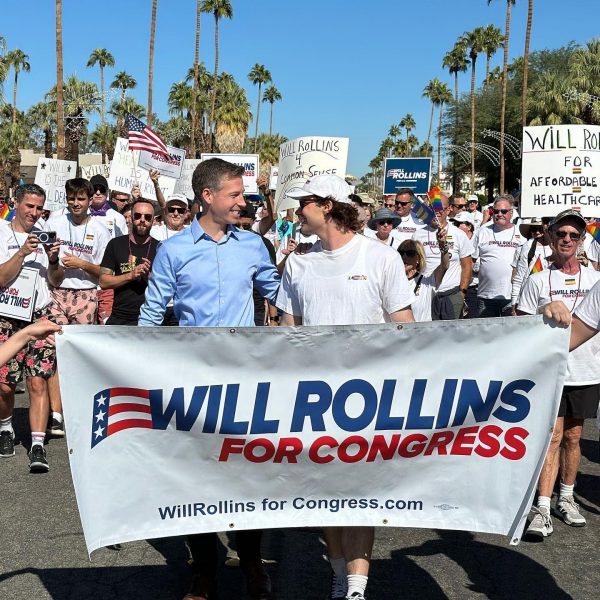
Rollins, who played a role as a Assistant U.S. Attorney in tracking down individuals involved in the January 6th attack on the U.S. Capitol, expressed his frustration with incumbent Congressman Calvert’s actions, particularly regarding the certification of the election results and his stance on LGBTQ+ rights. Rollins cited Calvert’s voting record of homophobia as motivating factors for his decision to run for office.
“You shouldn’t be fired from your job or kicked out of your home just for being gay that is still a possibility in America.”
Among Rollins’s top priorities is the protection of voting rights, emphasizing the importance of ensuring equal access to the ballot box for all Americans. He also stressed the urgency of passing the Equality Act to combat discrimination based on sexual orientation and gender identity, highlighting the need for comprehensive federal protections.
Addressing local concerns, Rollins emphasized the need for improved infrastructure in Riverside County, particularly to alleviate traffic congestion.
“Traffic sucks whether you’re a Republican or a Democrat,” Rollins said. “I think we can all agree on that.”
He also criticized corporate greed, which he believes is driving up prices and exacerbating financial strain on middle-class families.
“Corporate greed right now is driving up prices for average working families in so many different contacts, whether it’s baby formula or milk, whether it’s your groceries or your gas. A lot of this is driven by massive concentration of wealth by corporations and individuals who pay for less in taxes than nurses, cops, and firefighters. This is a fundamental issue that Washington has let go for way too long.”
Rollins highlighted Palm Springs as an example of effective governance, praising the city’s inclusive policies and economic growth. He emphasized the importance of visible representation for the LGBTQ+ community and underscored the economic benefits of creating welcoming and inclusive communities.
Additionally, Rollins pledged to prioritize women’s rights, including the codification of Roe v. Wade into federal law, in response to concerns about reproductive rights and access to healthcare.
“Women’s rights right now are at the forefront of my priorities,” Rollins told The Blade.
As Rollins continues his campaign, his platform reflects a commitment to social justice, economic prosperity, and inclusive governance, with a focus on addressing the pressing needs of Riverside County residents. If elected, Rollins aims to bring his experience and values to Congress, advocating for meaningful change and progress on behalf of his constituents.
Closing Thoughts
Rollins gave the following message for young queer leaders of tomorrow.
“The American dream is a possibility for you too. We are going to work hard every single day to make sure it becomes a reality. I hate to use the cliché, It gets better, but it really does and once you find your family, the possibilities are endless. I know it can be really dark sometimes. I’ve been there myself. But we are resilient and your resilience will pay in the long run too. I think that 2024 is going to send a lot of people who believe in our freedom of equality into Congress and so stay optimistic and thank you for hanging in there.”


